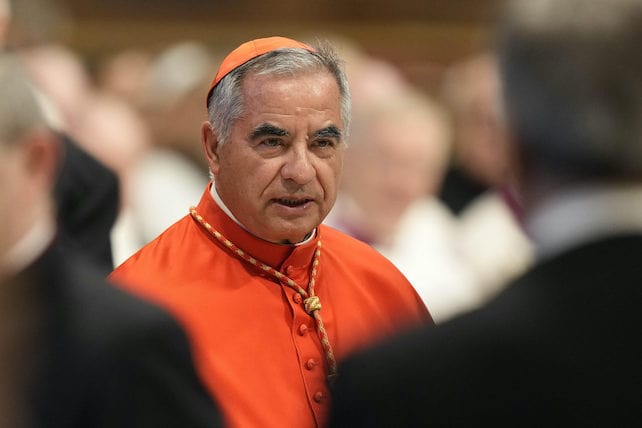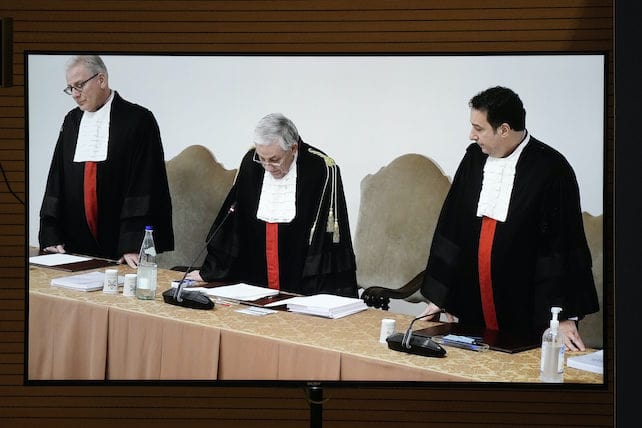VATICAN CITY (RNS) — After a trial lasting two and a half years, which addressed financial mismanagement by the Vatican’s Secretariat of State, Vatican judges sentenced Cardinal Angelo Becciu to five years and six months in prison for the embezzlement of Vatican funds.
The sentencing on Saturday (Dec. 16), which also included a ban from holding any public office, marked the first time a cardinal was condemned by a Vatican penal court. Becciu was present at most of the hearings but did not attend the pronouncement of the final sentence of the tribunal.
While Pope Francis stripped him of his cardinal privileges in 2020, including the opportunity to take part in the conclave that will decide the next pope, Becciu has adamantly maintained his innocence throughout the proceedings.
His lawyers maintained the trial proved Becciu’s innocence. “We respect the sentence, but we will certainly appeal the decision,” lawyer Fabio Viglione told Vatican journalists after the sentencing.
In addition to prison time, the 10 defendants, including clergy members and lay individuals, were sentenced to compensate the Vatican—which prosecutors argued suffered reputational damage due to the scandals—a total of 200 million euros, to be paid to the Institute for Religious Works, commonly known as the Vatican Bank.
The lead prosecutor, Alessandro Diddi, said he is “satisfied” that the work they have done, which was highly contested by defendants, was recognized. “We have been called incompetent and ignorant,” he told Vatican journalists on Saturday, “but the result proves us right.”
The Vatican tribunal, led by known anti-mafia judge Giuseppe Pignatone, voiced gratitude for those who took part in the proceedings of this “unusual trial” before retiring to make the long-awaited decision.
Pignatone admitted the decision will be met by “criticism from all sides. It’s normal, it’s part of the game.”
Described by Vatican experts as the “trial of a century,” the financial trial attempted to tackle corruption and mismanagement in the Catholic institution within the context of papal financial reforms.
During its 86 hearings lasting over 600 hours, the trial also highlighted the challenges facing the Vatican’s judicial system, which was at times overwhelmed by the complexity and scope of the proceedings. It also exposed a network of rivalries and favoritism within the competing departments of the Vatican Curia.


